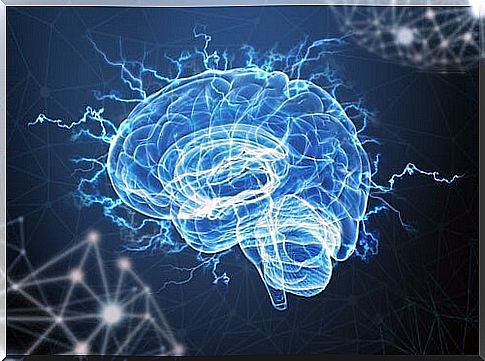Overcoming Trauma Thanks To Neuroplasticity

Trauma underlies numerous emotional and mental problems. It is not uncommon to live an entire existence in the shadow of a traumatic experience and even pass it on to subsequent generations through behaviors marked by the post-traumatic stress that derives from it. But neuroplasticity could help us overcome trauma.
The word “trauma” is not always well understood, at times it is minimized, at other times it is magnified. In the first place, trauma is often recognizable through post-traumatic stress. Second, the experience that causes it doesn’t have to be exceptional or devastating in the eyes of others.
An event becomes traumatic depending on the way it is experienced and its maladaptive effects. Sometimes there is a painful event at the base, such as the death of a loved one; at other times it arises from apparently less dramatic situations, such as seeing the father kissing a woman who is not the mother.

The traumas
From the above, it follows that the trauma par excellence is the emotional impact. In some cases it is triggered by a specific event, in others it is caused by a chain of painful events associated with each other.
In both cases it causes shock, that is, complete bewilderment. This happens when the cognitive or emotional tools are not found to understand the situation and integrate it into personal experience. A state of stupor and block follows.
Much of this confusion stems from the fact that trauma occurs as a result of completely surprising situations. The nervous system is not prepared to deal with the event and, therefore, is unable to react in an organized and coherent way.
Post-traumatic stress
All trauma causes a phenomenon known as post-traumatic stress. The manifestations and intensity depend on the severity of the experience, the general psychological state at the time the event occurs, the context in which it arises and the recurrence of the traumatic experience. The typical manifestations of post-traumatic stress occur in four areas:
- Recurrence of the traumatic event. It happens through constant remembrance, nightmares, forebodings, and agitation when you think back to the event.
- Avoidance. Tendency to evade the subject and everything related to it.
- Changes in mental state. Forgetfulness or suppression of the event or part of it, detachment from reality, apathy, pessimism, inability to feel positive feelings.
- Excitement and reactivity. Insomnia, difficulty controlling anger, lack of concentration, nervousness, constant fear, hypervigilance.
Why does neuroplasticity help overcome trauma?
Trauma not only causes effects on the mind, but also a kind of reset or recalibration of the nervous system. The brain of a traumatized person changes, generating a constant activation of the alarm system. It will be possible to recover its normal state only through a formal intervention. Sometimes it is not reached anyway.
Post-traumatic stress, therefore, also leaves its mark on the brain. Advances in neuroscience have allowed us to establish that the brain is plastic, that is, it changes when subjected to specific stimuli. Experts in this field point out that just as trauma changes the brain, other experiences can also restore it to its normal functions.
Neuroplasticity is the brain’s ability to change based on experience. Currently there are several therapies whose purpose is to overcome post-traumatic stress by exploiting this cognitive characteristic. These are interventions aimed at inducing changes in the central nervous system.

How to overcome trauma using neuroplasticity
Dutch researcher Bessel Van der Kolk is one of the leading experts in this field. In his opinion, activities such as yoga, theater therapy, neurofeedback, experiential psychodrama and therapeutic massages are very effective to overcome post-traumatic stress.
Other experts, such as Alain Brunet, a clinical psychologist specializing in trauma, propose a treatment in stages: recall (often with simultaneous sedation), detailed writing of the history of the trauma and reading aloud what has been written. Sessions take place once a week, for five weeks.
It is surprising to note how many people carry trauma within themselves without knowing it or wanting to know it, because they are overwhelmed by it. However, the presence of the traumatic experience can be glimpsed through the manifestations of post-traumatic stress.
Now, however, we know that one is not forced to live forever with this imprint in the mind. Neuroplasticity allows us to get out of the labyrinth.









